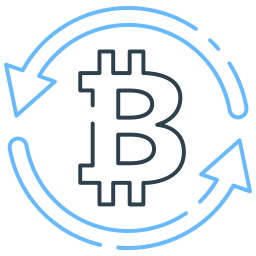Bitcoin Adoption and Its Global Impact: Understanding the Rise of Decentralized Finance
Decentralized finance (DeFi) has been gaining momentum in recent years, transforming the way we think about financial services. DeFi platforms provide a decentralized alternative to traditional finance, allowing users to access financial services without the need for intermediaries. In this article, we will delve into the world of DeFi and explore its innovations, benefits, and potential risks.
DeFi is built on blockchain technology, which enables secure, transparent, and tamper-proof transactions. The use of smart contracts, decentralized autonomous organizations (DAOs), and other decentralized technologies has made it possible for users to create their own financial instruments and services.
One of the key innovations in DeFi is the creation of lending protocols. These platforms allow users to lend and borrow cryptocurrencies, providing a decentralized alternative to traditional lending institutions. For example, Compound is a popular lending protocol that allows users to lend and borrow ETH, DAI, and other cryptocurrencies at competitive interest rates.
Legal and Regulatory Updates in the Crypto Space: Understanding DeFi Regulation
As DeFi continues to grow in popularity, it’s essential to understand the regulatory landscape surrounding it. While DeFi is built on blockchain technology, which operates outside traditional financial systems, it still requires regulation to ensure consumer protection and prevent illicit activities.
In recent years, there have been several legal and regulatory updates in the crypto space that have impacted DeFi. For example, the Securities and Exchange Commission (SEC) has taken a strict stance on initial coin offerings (ICOs), considering many of them as securities. This has led to increased regulation of the ICO market and the rise of alternative fundraising models.
Another key development is the emergence of decentralized finance regulations, such as the DeFi Act in the United States. This legislation aims to provide clarity and guidance for DeFi platforms, ensuring they comply with existing laws and regulations while also promoting innovation and growth.
Benefits of Decentralized Finance
So, what are the benefits of DeFi? Here are a few:
1. **Increased Accessibility**: DeFi platforms provide financial services to anyone with an internet connection, regardless of their location or economic status.
2. **Lower Fees**: DeFi protocols often have lower fees compared to traditional financial institutions, making it more accessible and affordable for users.
3. **Higher Returns**: DeFi platforms can offer higher returns on investment compared to traditional assets, such as stocks and bonds.
4. **Security**: DeFi platforms operate on blockchain technology, which provides a secure and transparent way of conducting transactions.
Potential Risks of Decentralized Finance
While DeFi offers many benefits, it also comes with potential risks. Here are a few:
1. **Market Volatility**: Cryptocurrency markets can be highly volatile, leading to significant price swings.
2. **Security Risks**: DeFi platforms can be vulnerable to security breaches and hacking attempts.
3. **Regulatory Uncertainty**: The regulatory landscape surrounding DeFi is still evolving, which can create uncertainty for users.
Best Practices for Using Decentralized Finance
To minimize the risks associated with DeFi and maximize its benefits, here are a few best practices to follow:
1. **Conduct Thorough Research**: Before using any DeFi platform or service, conduct thorough research on its reputation, security measures, and regulatory compliance.
2. **Understand Risks**: Understand the potential risks associated with DeFi, including market volatility, security breaches, and regulatory uncertainty.
3. **Diversify Your Portfolio**: Diversifying your portfolio can help reduce risk and increase returns in DeFi.
Conclusion
Decentralized finance (DeFi) is a rapidly evolving field that offers many benefits, including increased accessibility, lower fees, higher returns, and security. However, it also comes with potential risks, such as market volatility, security breaches, and regulatory uncertainty. By understanding the innovations, benefits, and potential risks of DeFi, users can make informed decisions about how to use these platforms and services. As DeFi continues to grow in popularity, it’s essential to stay up-to-date on legal and regulatory updates in the crypto space.



